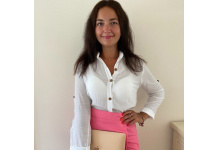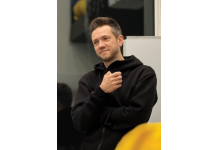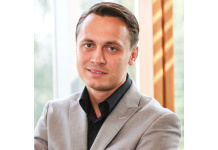II. "Don't Get Around Much Anymore"

- William Laraque, Managing Director at US-International Trade Services
- 13.07.2015 01:00 am undisclosed
I find Managing by Walking Around to have been the most valuable management technique of my long career. Let me explain my perspective on this process. Deming explained that you can only improve a process or a system by having a deep knowledge of it. By looking at systems from an engineering, systems analysis, operations research, sociological, political, socioeconomic, financial, philosophical, artistic, poetic, scientific, geopolitical, humanitarian, cost-benefit, automation point of view, one gains a perspective on their continuous improvement.
It really doesn't matter whether it is a political, governmental, business or personal system. Deep knowledge and a considerate, non-egotistical attitude are needed to be transformative of any system.
In managing by walking around, I find that few politicians, academics, pundits, economists don’t get out of their silos and egos much. The result is mediocrity. Excellence requires walking, getting around more.
Is the glass half full or half empty?
Systems analysis provides another way of looking at this age old question. You could look at the glass and say that its capacity is twice what is required to fill it.
Solutions often require us to look at the problems we are trying to solve in a different way.
Mies VandeRohe famously said that "the devil is in the details." Before that Goethe said that "God is in the details, the devil in the extremities."
Let us consider from 100,000 feet, not the capacity of glasses but the capacity of countries for economic growth. Joseph Stiglitz, the Nobel Prize winning economist noted, "Much of America's inequality is the result of market distortions with incentives directed not at creating new wealth but at taking it from others." Corruption and plutocracy accomplish the same distortion in many economies.
I was thinking about economic distortion in investment while examining a phrase from Pope Francis" encyclical "Laudato Si" (We Praise You): The first phrase is:
"We can find in the Gospel the keys that will allow us to confront today’s challenges, appreciating our differences, fostering dialogue and participation without exclusion.”
The second phrase is from the "Brazil Bishop's statement in Pope Francis' exhortation, "Evangelii Gaudium," The Joy of the Gospels:
"We wish to take up daily the joys and hopes, the difficulties and sorrows of the Brazilian people, especially of those living in the barrios and the countryside – landless, homeless, lacking food and health care – to the detriment of their rights. Seeing their poverty, hearing their cries and knowing their sufferings, we are scandalized because we know that there is enough food for everyone and that hunger is the result of a poor distribution of goods and income. The problem is made worse by the generalized practice of wastefulness"
192. Yet we desire even more than this; our dream soars higher. We are not simply talking about ensuring nourishment or a "dignified sustenance" for all people, but also their "general temporal welfare and prosperity.” “This means education, access to health care, and above all employment, for it is through free, creative, participatory and mutually supportive labour that human beings express and enhance the dignity of their lives. A just wage enables them to have adequate access to all the other goods which are destined for our common use.
Economies studied by the Global Economic Forum are still subject to burdensome regulations and vague rules that impose inefficiencies on the creation of jobs, obstacles to private sector activity. The private sectors in many of the 189 countries studied include getting credit, protecting investors, cost and efficiency of starting a business, getting construction permits, registering property, paying taxes, trading across borders.
The economies ranking highest in ease of doing business have managed to create a regulatory system that provides the protection of public interests while recognizing the need to have a dynamic private sector, unhindered by excessively burdensome regulations. For example, an economy may make it easy to start a business but if getting financing is difficult, the constraints will hamper the growth of new firms, discouraging entrepreneurship.
In its "Global Competitiveness Report, the Global Economic Forum has created an index that evaluates 144 economies in 12 "pillars," based on 65 criteria, including the strength of public institutions, macroeconomics, infrastructure, health and education, goods and labor market efficiency, technological readiness and innovation.
Economists do not look sufficiently at the bottom rung of the economic ladder. They also do not sufficiently consider the financial logistics, the ease of getting capital to the entrepreneur. It is the entrepreneurs who create new jobs in any economy.
With the Internet, how we invest is forever changed. Now the investor can provide capital directly to the entrepreneur. This will change the world. How?
The immigrant based in an "ethnic" or cultural community, can invest directly through credit unions or community banks in order to provide capital goods to a specific country. In the process both the country and the investor are benefited. For example, let us examine an investor who provides financial support by investing in a credit union or which lends the money invested to a U.S.-based exporter. This U.S.-based exporter makes filtration systems which turns brackish water to potable water. Let us say that the U.S.-based investor is fromAngola. By funding the export of the filtration system to Angola, two things happen. Angola is benefited. One of six children does not live beyond the age of 5 in Angola. The investor is benefited because gross margins from international trade are so much greater than the return on investment in purely domestic businesses.
This "righteous cycle" of investment can also involve direct investment. Through Lending Club, Prosper and a spurt of new investment platforms, investors can provide capital directly to the entrepreneur.
If the entrepreneur as in the case of our filtration company, exports, the investment will require risk mitigation. This is where the foreign political and commercial risk mitigation instruments of U.S. Ex-Im Bank come in with insurances and guaranties. Risk mitigation is also provided by the export credit insurance of private and such quasi-governmental insurance agencies as Coface, Euler-Hermes, and Atradius.
Before its charter was not re-authorized by the U.S. Congress, Ex-Im Bank paid insurance claims in an average of 44 days.
As you can see, in doing well by doing good, God is in the details, the devil in the extremities.





















